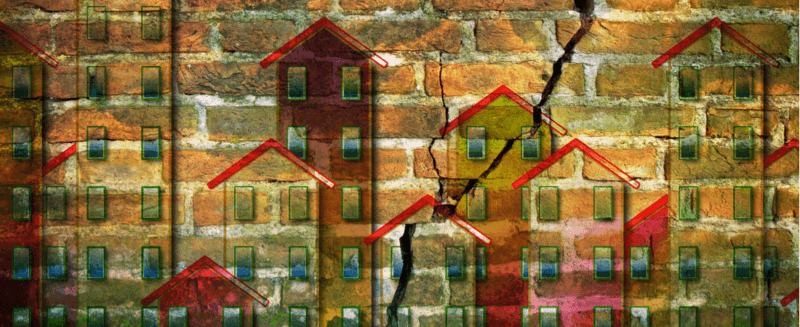Who qualifies for subsidized housing? A new study looks at the backgrounds of the 9.4 million people living in HUD federally subsidized housing programs.
Ponder this: There are 9.4 million people living in subsidized housing that is funded at least partly by the Department of Housing and Urban Development (HUD). The median household income of these families is $12,906 (one-fifth of the national median household income of $61,372), according to a new study by Porch, a network where homeowners and home professionals can connect.
Who Qualifies for Subsidized Housing?
There are a lot of myths floating around about subsidized housing, which often gets confused with rent control. Subsidized or public housing is limited to low-income families and individuals. Eligibility is based on three factors: annual gross income, whether an applicant qualifies as elderly, a person with a disability, or as a family and U.S. citizenship or eligible immigration status.
There are three major forms of federally subsidized housing assistance: public housing, privately owned subsidized housing, and the housing choice voucher program (often called Section 8).
Roughly 3 percent of the U.S. population resides in federally subsidized housing. More than 40 percent of HUD residents are black. Over 30 percent are white non-Hispanic. Close to 15 percent are Hispanic. Less than 5 percent are Asian Pacific, multiracial or Native American.
The findings are less surprising than they are disappointing. According to the study, “The ethnic composition of HUD residents reflects broader economic inequalities: Whereas black individuals account for 13 percent of the American public, they represent 44 percent of those receiving federal housing assistance. This finding corresponds roughly to the demographics of economically disadvantaged citizens: The black poverty rate is more than twice the white poverty rate, a disparity that has existed for decades.”
Women and Children Living in Subsidized Housing
Another unhappy reality is that most of the nearly 3.8 million of the more than 4.9 million HUD subsidized housing units have a female head of household. They’re either single women or single mothers. In regions where women represent a relatively high percentage of HUD residents, occupants of public housing tend to earn less overall.
According to the Porch study, “This finding reaffirms data about the disproportionate impact of poverty on single women and children. Female Americans have higher poverty rates than their male counterparts, and half of the children in female-headed households fall below federal poverty thresholds.”
The gender wage gap is an obvious factor that might contribute to this trend. Scholars suggest mass incarceration of black males is another reason why so many subsidized housing units skew heavily female.
How Much Does the Government Contribute to Subsidized Housing?
While the overall amount of money the federal government spends on subsidized housing seems huge, the numbers are modest on the individual family level. The average monthly government contribution to subsidized housing per resident is $576. HUD residents pay an average of $315 for housing costs each month. Residents are supposed to contribute about 30 percent of their monthly income, but there are exceptions and some families pay a flat rate instead of a percentage of income.
In 2018, HUD Secretary Ben Carson proposed rent increases for HUD residents, arguing that it would encourage families to increase their incomes and lead to self-sufficiency. His opponents warned it could create a crisis in homelessness by pushing residents who could no longer afford public housing out. Carson backed off, but has yet to propose an alternative plan to address federal housing costs.
More on Housing Costs:
What You Need to Know About Buying a Home in 2019
Will Buying a House Hurt My Credit?
Don’t Have a Mortgage? It’s Unlikely You’ll Get One
Is Tech to Blame for the West Coast Housing Crisis?
Which Housing Market is the Biggest Real Estate Bubble?
Is the American Dream Out of Reach?
How a Computer Glitch Forced Foreclosure on 400 Homes
When is the Best Time to Buy a House?







Hello there I am looking for help to get into a small apartment or something I have a very little income